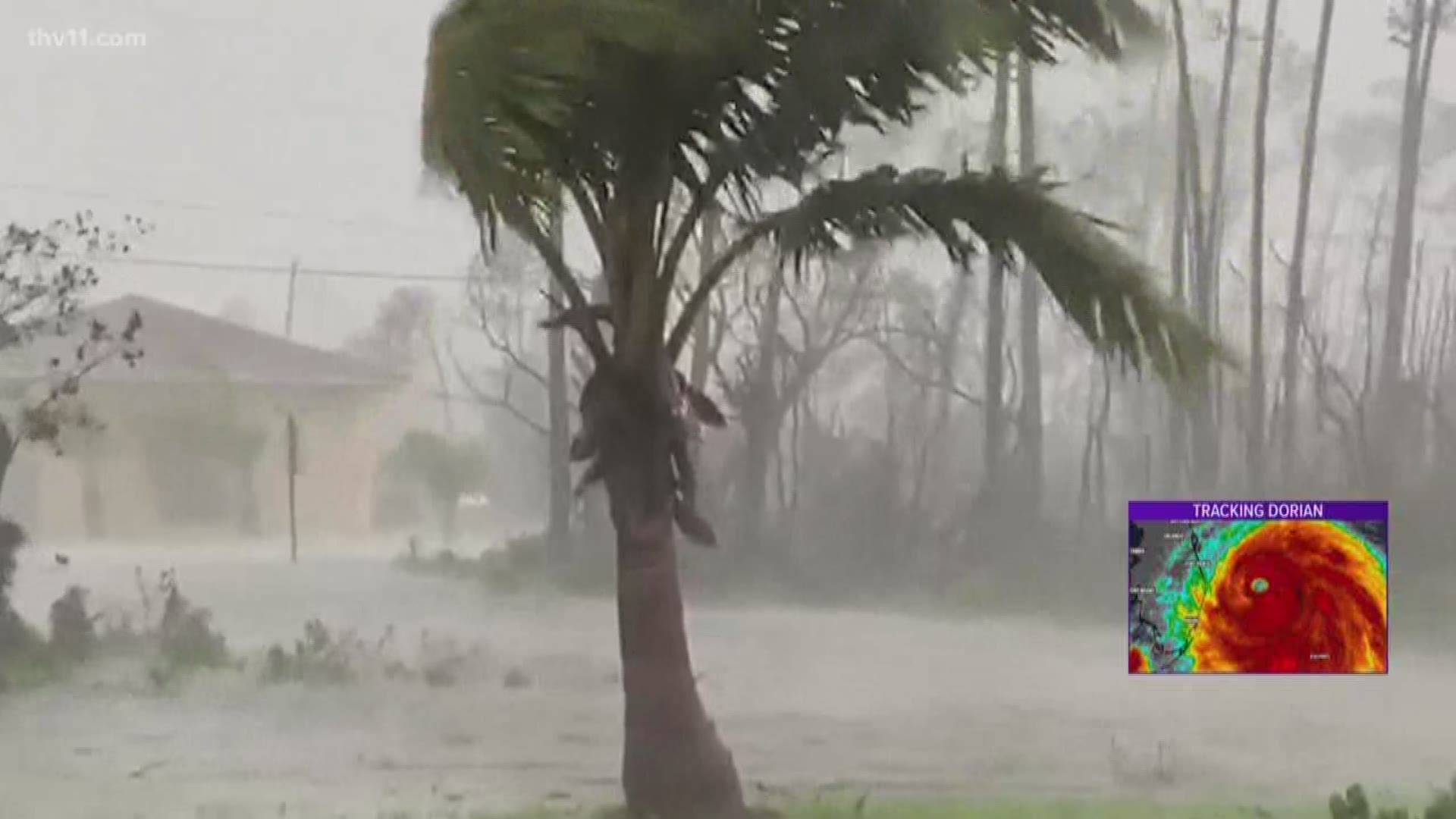LITTLE ROCK, Ark. — While the Atlantic Coast waits for Hurricane Dorian to approach, some Arkansans are taking action by heading east.
Lots of volunteers are on their way so they can help people in Dorian's path.
"Well, first, I got into it because I needed something to do after retirement," Larry Martens explained Monday, "but now, I've found that what I'm able to give is more rewarding than what I was getting paid to do in my past life."
Martens is one of the more than 30 American Red Cross volunteers in the Arkansas-Missouri region who have been activated to help those affected by Dorian. He is part of the disaster mental health services team and calls on his years of experience as a licensed professional counselor.
His job is to help disaster victims find a glimmer of hope after what might be the worst moment of their lives.
"Needless to say, these disasters are extremely stressful," Martens said. "For the most part, our clients are overwhelmed, not only by the loss, but all the work involved in cleaning up and recovery. Of course, there's the grief of what they've lost.
"Because their lives have been pretty well shredded. If we can give them some tips like that to where they can start feeling a sense of control come back, then we've helped them move along."
Martens has deployed more than 70 times in the dozen years since he started volunteering with the American Red Cross, so he knows what he might find if Dorian strikes the U.S.
“I’ve been on enough of these that I got one dresser drawer, got 10 days’ supply of clothes in it," he joked. "I can pack in 10 minutes, easy.”
Martens uses humor and his own story to help quickly connect with people he meets during disasters.
“I’m from Welcome Home, Arkansas," he tells clients. "That’s 18 miles out of Marshall. We have a volunteer fire station, one church, and four houses. And, I’m a half-mile from the center, so that puts me in the suburbs! And I use that very frequently in talking with clients, because it kind of sets a mood. It’s okay to make fun of myself.”
Martens will leave Tuesday morning to meet up with supervisors in Columbia, South Carolina. He will stay for up to two weeks wherever the American Red Cross needs him, and will work with both victims and fellow volunteers.
“Our staff is under a lot of pressure," he stated. "I mean, needless to say, there is a lot of chaos that goes with this, and the staff is there, trying to work through it.”
The first time Martens deployed was for Hurricane Ike, which made landfall near Houston in 2008 before moving northwest through Arkansas. He said he was anxious about what he would find and how it would affect him.
“I had the misfortune of having to ride (Hurricane) Katrina out in Biloxi, Mississippi," he explained. "And, wasn’t no big deal at the time, but a few years later we had a tornado in the north part of the state, and I got to hearing people talking about that and I, I went into a flashback. It scared the daylights out of me. There was nothing…I knew what was happening but I couldn’t come out of it.
"And just a couple of weeks later, I get a call, ‘Larry, we want you to go down to Houston for Hurricane Ike. I said, ‘oh, Lord. This is where I meet my demons!’ But it went well.”
Martens has worked all sorts of disasters since then, including search and rescue missions and the sinking of a duck boat in Branson last year. The work is tough, but he said the hardest part might be that he does not spend enough time with the victims to see their progress.
"All we can do is say we’ve tried," Martens said. "We hope that the people can move forward. We’ve tried to give them some direction. Our rewards…after I get home, I might start feeling that I may have touched this one person.
"I had one person I talked with—really down in the dumps—and give him a normal thing, and the next day he walked up to me and says, ‘Larry, you saved my life.’ He gave me none of the classic symptoms, but that’s…sometimes you get rewards more instantaneous. Other times, it’s just knowing that you was there for them. You may have been that grain of sand that helped them along.”
Hurricane Dorian moved slowly over the Bahamas on Monday and its future path is uncertain, but it will most likely move along the coasts of Florida, Georgia, and the Carolinas. Martens believes it is important for mental health specialists such as himself to arrive before the storm so they can get to work as quickly as possible.
“The sooner we can get people to looking forward instead of back, the sooner they’re going to start making progress in recover," he explained. "And when they can start making progress, they can see that it’s not all doom and gloom. But as long as they’re looking back, that’s all they see is the doom and gloom. So, it’s getting them to shift their focus in a forward direction.”
These 32 volunteers are just the first wave.
The Red Cross might send a lot more depending on where Dorian goes and how much damage it causes.
RELATED:

